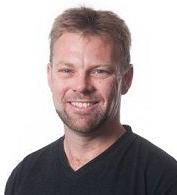When it comes to the Australian tradition of shouting someone a drink, the unfortunate truth is that no matter how long you wait, one in five people will never shout you in return.
And the reasons why are almost never as simple as someone trying to get away with not paying their fair share – why we do the things we do with money can be as complicated as the deep social implications that this behaviour can have.
Dr Paul Blacklow, an economist at the Tasmanian School of Business and Economics, consults widely on a number of issues related to spending at the micro economic level.
He works with governments on issues such as the cost versus the benefits of legalising certain drugs, and collaborates with the welfare sector on questions related to things like the impact of a death tax.
With a broad range of skills in applied econometrics and the analysis of very large datasets, Dr Blacklow has worked on everything from calculating the cost of having children, to how people make decisions between private and public education.
He’s particularly interested in the ‘micro transactions’ in society that are often missed by economists who are more focussed on tracking the ‘big picture’ patterns.
For example, there’s no economic theory about taking turns to pay, but that’s something we regularly see in Australian society.
Dr Blacklow’s research focusses on everyday household decisions, such as how much families or individuals spend on their goods.
“So, if you’re a big family spending a lot of money on food, then the price of food is going to be very important to you. And if there’s a rise in the price of power, that’s going to impact the elderly and the unemployed more than anyone else, because they spend most of their time at home,” he said.
“Most people get into economics for the macro elements, such as employment and inflation. And I did too, but in the end, I thought I couldn’t get the answers I wanted without drilling down to the micro level.”
Dr Blacklow grew up in Burnie, a town of roughly 20,000 people on the north-west coast of Tasmania, and his early interest in economics was sparked by the recession of the 1990s.
I was trying to understand what was going on. Why was my town poor, why was the economy of the town performing poorly?
After graduating, Dr Blacklow worked at the Australian Bureau of Statistics (ABS) and became familiar with their large datasets and how to mine them for valuable insights and information.
More recently, he’s been analysing data in the area of experimental economics at the University of Tasmania, which looks at spending behaviours such as shouting, or whether people will spend money just to make themselves look good.
My research helps build a more comprehensive picture of individual spending behaviours, rather than just relying on an idea of the ‘average’ Australian consumer.
“This can help build our understanding of economic behaviour, and eventually lead to changes in government policy.”
Find out about studying Business and Economics at the University of Tasmania here.
